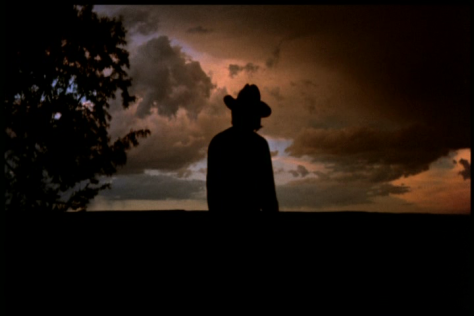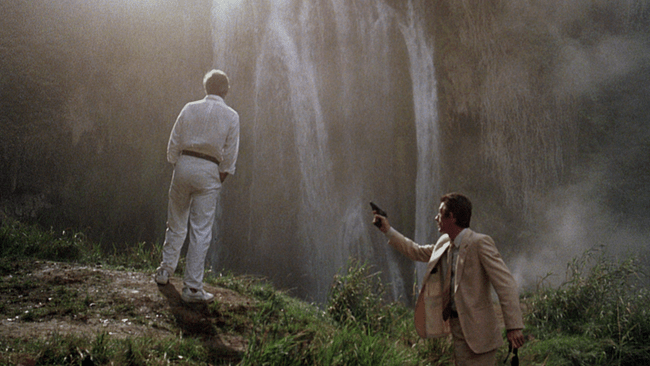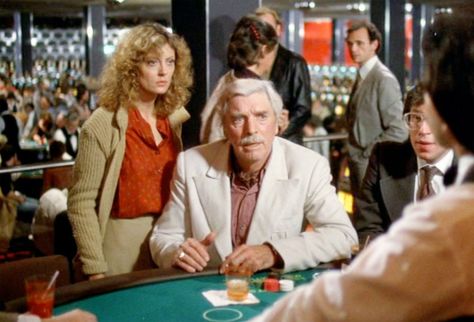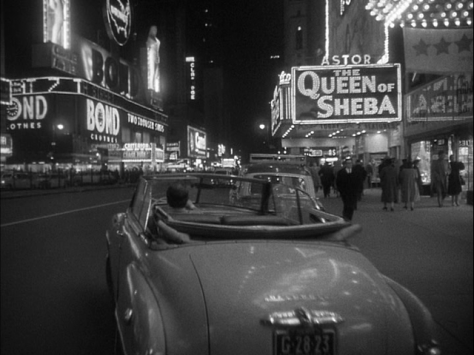By Dennis Hartley
(Originally posted on Digby’s Hullabaloo on August 17, 2019)

Regarding Peter Fonda: Well, I didn’t see that coming. Not so much his death (he was 79 and he had been battling cancer for a while) but my unexpectedly emotional reaction to it.
At 63 I’m no spring chicken myself; by the time you reach your sixth decade, you begin to grow armor against losing your shit every time another pop culture icon of your youth buys the farm. It’s all part of life. Nobody lives forever, and your idols are no exception.
[**SPOILER ALERT**] So why the waterworks? I mean, I was 13 when Easy Rider came out in 1969; by the time I finally had a chance to see it (probably on late-night TV or maybe a VHS rental…can’t recall) I was in my mid 20s and Jerry Rubin was working on Wall Street; so obviously that abrupt shock ending where Captain America gets blown away by inbred rednecks did not have the contemporaneous sociopolitical impact on me that it might have for a 25 year-old dope smoking longhair watching it in a theater back in 1969.
Maybe it’s the timing of Fonda’s passing. Not that he planned it, but it came smack dab amid the 50th anniversary of Woodstock (August 15-17, 1969). Since it began on Thursday, I’ve been sporadically listening in to a 72-hour synchronized broadcast/web-streaming of the uncut audio recordings of every Woodstock performance via Philly station WXPN. It’s a very different experience from watching Michael Wadleigh’s famous documentary, which (for very practical reasons) only features bits and pieces of the event. WXPN’s presentation is more immersive, and somehow-it is more moving.
So perhaps I was feeling extra nostalgic about the era; which adds additional poignancy to Fonda’s passing, as he was very much a part of the Woodstock Generation iconography.
But Fonda was not just an icon, he was a human being. Here’s his sister Jane’s statement:
“He was my sweet-hearted baby brother. The talker of the family. I have had beautiful alone time with him these last days. He went out laughing.”
I did not know him personally, but if you can go out laughing…that is a pretty cool life.
As to that part of his life he shared with all of us-here are some film recommendations:

Dirty Mary, Crazy Larry – John Hough’s 1974 road movie features Fonda as the leading man and co-stars Susan George (*sigh* my first teenage crush) and Adam Roarke. Fonda and Roarke are car racing partners who take an ill-advised detour into crime, robbing a grocery store in hopes of getting enough loot to buy a pro race car. They soon find themselves on the run from the law. A shameless rip-off of Vanishing Point; but delivers the thrills for action fans (muscle car enthusiasts will dig that cherry ’69 Dodge Charger).

Easy Rider – This was the film that not only awakened Hollywood to a previously untapped youth market but put Fonda on the map as a counterculture icon. He co-wrote the screenplay along with Terry Southern and Dennis Hopper (who also directed).
Fonda and Hopper star as two biker buddies (flush from a recent lucrative drug deal) who decide to get on their bad motor scooters (choppers, actually) and ride from L.A. to New Orleans for Mardi Gras. Along the way, they encounter a cross-section of American society; from a commune of idealistic hippies, a free-spirited alcoholic Southern lawyer (memorably played by Jack Nicholson) to a pair of prostitutes they end up tripping with in a cemetery.
The dialogue (along with the mutton chops, fringe vests and love beads) may not have dated so well, but the outstanding rock music soundtrack has held up just fine. And thanks to Laszlo Kovacs’ exemplary DP work, those now iconic images of expansive American landscapes and endless gray ribbons that traverse them remain the quintessential touchstone for all American “road” movies that have followed in its wake.

The Hired Hand – Fonda’s 1971 directorial debut is a lean, poetic neorealist Western in the vein of Robert Altman’s McCabe and Mrs. Miller and Jan Troell’s Zandy’s Bride. Gorgeously photographed by the great Vilmos Zsigmond, it stars Fonda as a taciturn drifter who returns to his wife (Verna Bloom) after a prolonged absence.
Embittered by his desertion, she refuses to take him back, advising him to not even tell their young daughter that he is her father. In an act of contrition, he offers to work on her rundown farm purely as a “hired hand”, no strings attached. Reluctantly, she agrees; the couple slowly warm up to each other once again…until an incident from his recent past catches up with him and threatens the safety of his longtime friend and traveling companion (Warren Oates). Well-written (by Alan Sharp), directed, and acted; it’s a genuine sleeper.

The Limey – One of my favorite Steven Soderbergh films also features one of Fonda’s best latter-career performances. He’s not the main character, but it’s a perfect character role for him, and he runs with it.
Scripted by Lem Dobbs, Soderbergh’s taut 1999 neo-noir centers on a British career criminal (Terrence Stamp, in full East End gangster mode) who gets out of prison and makes a beeline for America to investigate the suspicious death of his estranged daughter. He learns she had a relationship with an L.A.-based record producer (Fonda), who may be able to shed some light on her untimely demise.
It’s fast-moving and smartly written, with an outstanding supporting cast that includes Lesley Ann Warren, Luis Guzman, Nicky Katt, and Barry Newman (look for a winking homage to Newman’s iconic character in Vanishing Point).

92 in the Shade – This quirky, picaresque 1975 black comedy is acclaimed writer Thomas McGuane’s sole directorial effort. (I consider it a companion piece to Frank Perry’s equally oddball Rancho Deluxe, which was also written by McGuane, features several of the same actors, and was released the same year).
Fonda stars as a trustafarian slacker who comes home to Key West and decides to start a fishing charter business. This doesn’t set well with a gruff competitor (Warren Oates) who decides to play dirty with his rival.
As in most McGuane stories, narrative takes a backseat to the characters. In fact, the film essentially abandons its setup halfway through-until a curiously rushed finale. Still, there’s a bevy of wonderful character actors to savor, including Harry Dean Stanton, Burgess Meredith, William Hickey, Sylvia Miles and Louise Latham.
Also in the cast: Margot Kidder (McGuane’s wife at the time) and Elizabeth Ashley (his girlfriend at the time)-which begs speculation as to what was going through his mind as he directed a scene where Kidder and Ashley exchange insults and then get into a physical altercation!

Race With the Devil –In this 1975 thriller, Fonda and Warren Oates star as buds who hit the road in an RV with wives (Lara Parker, Loretta Swit) and dirt bikes in tow. The first night’s bivouac doesn’t go so well; the two men witness what appears to be a human sacrifice by a devil worship cult, and it’s downhill from there (literally a “vacation from hell”). A genuinely creepy chiller that keeps you guessing until the end, with taut direction from Jack Starrett.

The Trip – This 1967 drug culture exploitation fest from famed B-movie director Roger Corman may be awash in beads, Nehru jackets, patchouli and sitars…but it’s a much better film than you’d expect.
Fonda plays a TV commercial director who seeks solace from his turned-on and tuned-in drug buddy (Bruce Dern) after his wife leaves him. Dern decides the best cure for Fonda’s depression is a nice getaway to the center of his mind, courtesy of a carefully administered and closely supervised LSD trip. Susan Strasberg and Dennis Hopper co-star. Trippy, with a psychedelic soundtrack by The Electric Flag.

Ulee’s Gold – Writer-director Victor Nunez’s 1997 family drama ushered in a career revival for Fonda, who received critical accolades (as well as an Oscar nomination and a Golden Globe win) for his measured and nuanced performance. Fonda plays a widower and Vietnam vet who prefers to keep himself to himself, living a quiet life as a beekeeper-until the day his estranged son (Tom Wood) calls him from prison, asking for a favor. Unexpected twists ensue, with Fonda slowly peeling away hidden depths of his character’s complexity. Beautifully acted and directed, with career-best work by Fonda.

The Wild Angels – Another youth exploitation extravaganza from Roger Corman, this 1966 drama kick-started a spate of low-budget biker movies in its wake. Fonda is a member of San Pedro M.C., The Angels. The club decides to party in Palm Springs…and all hell breaks loose. It’s fairly cliché genre fare, but a critical building block for Fonda’s 60s iconography; especially when he delivers his immortal line: “We wanna be free to ride our machines…without being hassled by The Man!” The cast includes Nancy Sinatra, Michael J. Pollard and erm-Laura Dern’s mom and dad (Bruce Dern and Diane Ladd!).






















